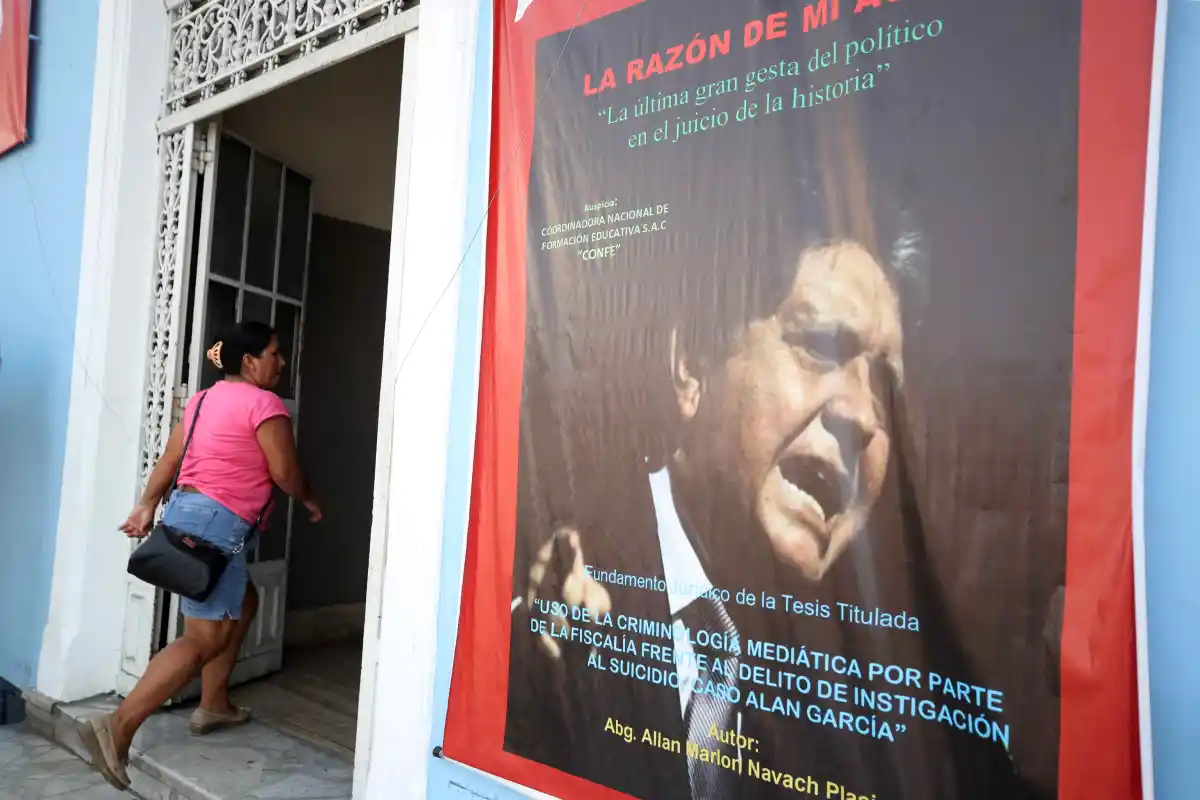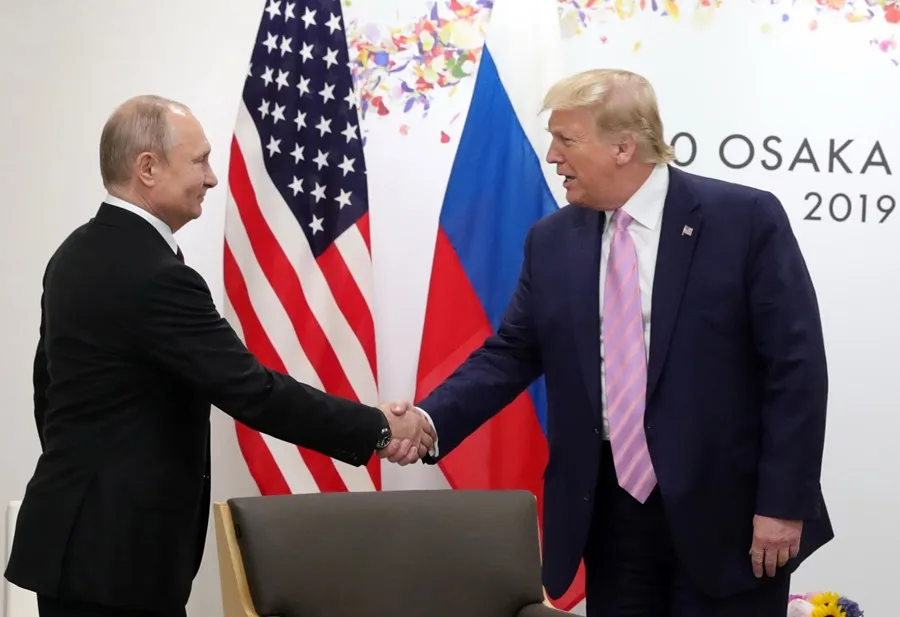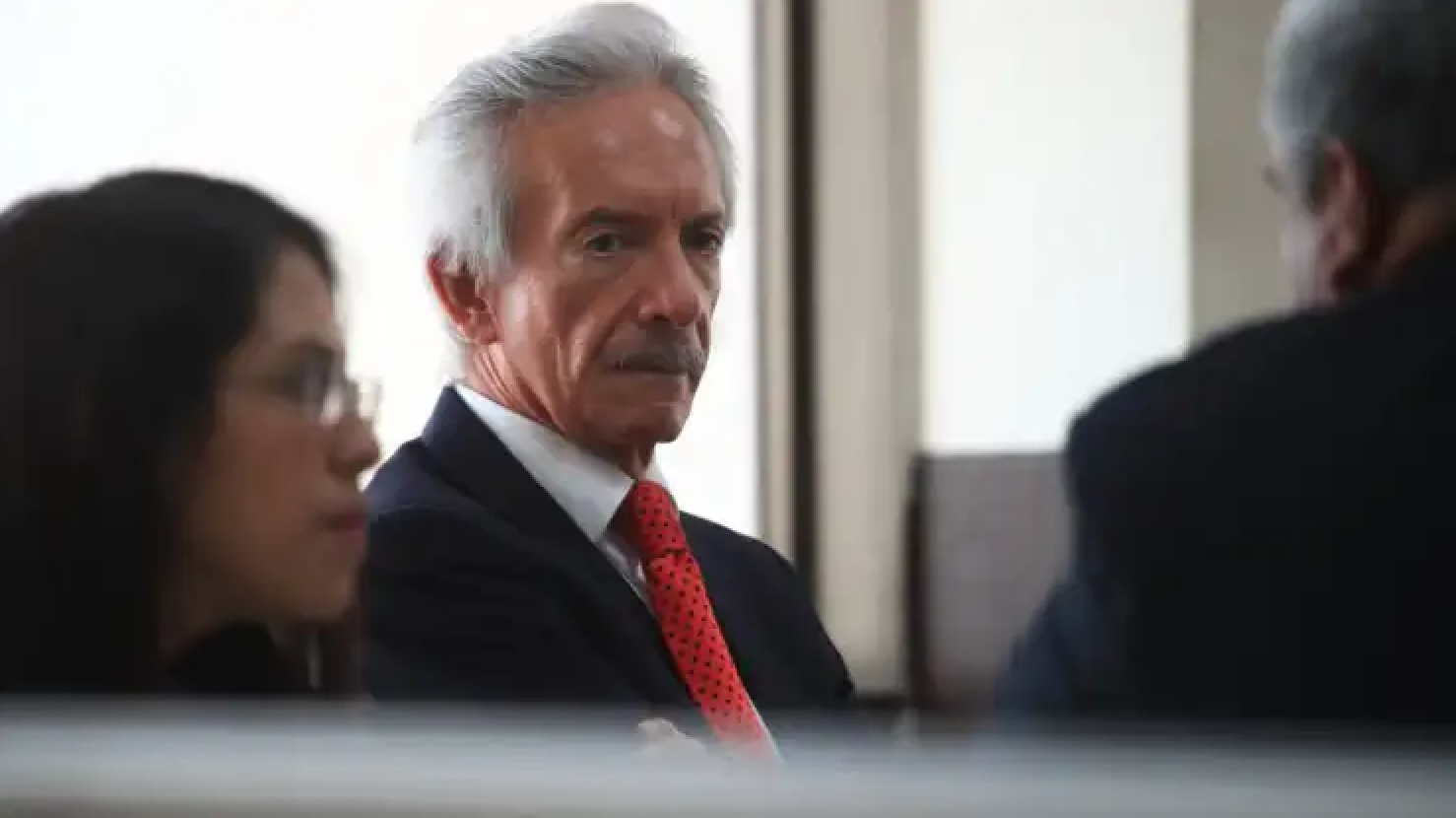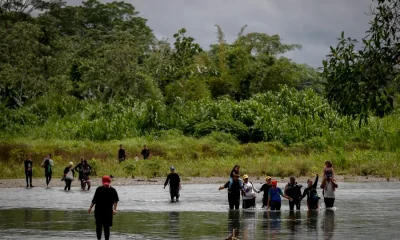International
The figure of Alan García is blurred in Peruvian politics five years after his death

Five years after his death, the figure of the powerful president Alan García (1949-2019) has been blurred without the appearance of a visible heir of his political legacy, or of his leadership in the historic Peruvian Aprista Party (PAP), which even lost its registration in the electoral register for two years.
García committed suicide on April 17, 2019 when he was going to be arrested for his alleged links to the Odebrecht case, although his closest collaborators have insisted during these years that he was the victim of a “criminal conspiracy.”
The controversy about his death was briefly revived last March, when several of his followers, including former Prime Minister Jorge del Castillo, complained about the decision of the Judiciary to authorize the Prosecutor’s Office to check two cell phones that were seized in his home.
Although that decision prohibited the Public Ministry from extracting or recovering information outside the process for the ‘Lava Jato’ case in Peru, Del Castillo assured that it was “outlaw,” since the investigation against the former president “ended with his death.”
Alan García was 69 years old when he committed suicide to prevent a group of police and prosecutors who arrived at his house from preliminarily detaing him for his alleged connection with the Odebrecht case, which he always denied.
He was made a farewell with massive funerals held at La Casa del Pueblo, the historic place of the PAP located in the center of Lima, and his remains were cremated on April 19, 2019.
From the beginning, his death generated controversies and clashes between followers and detractors, which have not been attenuated over time and even led a couple of years ago politicians such as the ultra-conservative Rafael López Aliaga, who has been mayor of Lima since 2023, to affirm that they would request that she be investigated.
In May of that year, former President Pedro Pablo Kuczynski, who is also being prosecuted for alleged corruption crimes related to the Odebrecht case, directly accused the Prosecutor’s Office of having “led to death” Alan García.
His closest followers have always pointed out that “he was the victim of a criminal conspiracy,” which they linked to incidents prior to his death, such as his entry into the Uruguayan embassy, whose Government refused in December 2018 to grant him the asylum he requested with the argument that he was a “political persecuted.”
Shortly before, Odebrecht executives assured that they had given him four million dollars during his second government, which he reached despite the fact that the shadow of corruption already haunted him from his first administration, from 1985 to 1990, when his administration left his country immersed in an unprecedented economic crisis.
Beyond that, and despite the fact that Alan García maintained a very active presence in Peruvian politics, his memory is decreasing both in local media, which in life they dedicated great coverage to him, and in the political space, something that has been consolidated by the absence of representatives of the PAP in Congress.
Although his supporters defend that his legacy cannot be erased, shortly after his death the leaders of his group engaged in internal disputes that generated a crisis that led to his retirement from the 2021 general elections.
Faced with that situation, in September of that year the National Election Jury (JNE) confirmed that the PAP, which was founded in 1930 by Víctor Raúl Haya de la Torre, had lost its official registration.
Finally, after numerous procedures and challenges, the party managed in March 2023 to confirm that it had been re-registered in the Registry of Political Organizations (ROP) of the JNE, so it will be able, in principle, to participate again in the elections to be held in Peru in 2026.
International
Trump urges Putin to reach peace deal

On Monday, U.S. President Donald Trump reiterated his desire for Russian President Vladimir Putin to “reach a deal” to end the war in Ukraine, while also reaffirming his willingness to impose sanctions on Russia.
“I want to see him reach an agreement to prevent Russian, Ukrainian, and other people from dying,” Trump stated during a press conference in the Oval Office at the White House.
“I think he will. I don’t want to have to impose secondary tariffs on Russian oil,” the Republican leader added, recalling that he had already taken similar measures against Venezuela by sanctioning buyers of the South American country’s crude oil.
Trump also reiterated his frustration over Ukraine’s resistance to an agreement that would allow the United States to exploit natural resources in the country—a condition he set in negotiations to end the war.
International
Deportation flight lands in Venezuela; government denies criminal gang links

A flight carrying 175 Venezuelan migrants deported from the United States arrived in Caracas on Sunday. This marks the third group to return since repatriation flights resumed a week ago, and among them is an alleged member of a criminal organization, according to Venezuelan authorities.
Unlike previous flights operated by the Venezuelan state airline Conviasa, this time, an aircraft from the U.S. airline Eastern landed at Maiquetía Airport, on the outskirts of Caracas, shortly after 2:00 p.m. with the deportees.
Interior Minister Diosdado Cabello, who welcomed the returnees at the airport, stated that the 175 repatriated individuals were coming back “after being subjected, like all Venezuelans, to persecution” and dismissed claims that they belonged to the criminal organization El Tren de Aragua.
However, Cabello confirmed that “for the first time in these flights we have been carrying out, someone of significance wanted by Venezuelan justice has arrived, and he is not from El Tren de Aragua.” Instead, he belongs to a gang operating in the state of Trujillo. The minister did not disclose the individual’s identity or provide details on where he would be taken.
International
Son of journalist José Rubén Zamora condemns father’s return to prison as “illegal”

The son of renowned journalist José Rubén Zamora Marroquín, José Carlos Zamora, has denounced as “illegal” the court order that sent his father back to a Guatemalan prison on March 3, after already spending 819 days behind barsover a highly irregular money laundering case.
“My father’s return to prison was based on an arbitrary and illegal ruling. It is also alarming that the judge who had granted him house arrest received threats,” José Carlos Zamora told EFE in an interview on Saturday.
The 67-year-old journalist was sent back to prison inside the Mariscal Zavala military barracks on March 3, when Judge Erick García upheld a Court of Appeals ruling that overturned the house arrest granted to him in October. Zamora had already spent 819 days in prison over an alleged money laundering case.
His son condemned the situation as “unacceptable”, stating that the judge handling the case “cannot do his job in accordance with the law due to threats against his life.”
-

 Central America5 days ago
Central America5 days agoNicaragua denounces Costa Rica’s position in SICA as aligned with foreign interests
-

 Central America5 days ago
Central America5 days agoNicaragua’s new judicial law consolidates power in Ortega and Murillo’s hands
-

 Central America5 days ago
Central America5 days agoPanama’s president declares Darién gap ‘closed’ amid sharp drop in migrant flow
-

 International3 days ago
International3 days agoSon of journalist José Rubén Zamora condemns father’s return to prison as “illegal”
-

 International5 days ago
International5 days agoMarco Rubio warns Venezuela against military action against Guyana
-

 International3 days ago
International3 days agoMiyazaki’s style goes viral with AI but at what cost?
-

 Central America2 days ago
Central America2 days agoPanama police clarifies that Interpol alert for Martinelli is still pending
-

 Central America20 hours ago
Central America20 hours agoU.S. Homeland Security Secretary urges Mexico to strengthen Guatemala border
-

 International20 hours ago
International20 hours agoTrump urges Putin to reach peace deal
-

 International2 days ago
International2 days agoDeportation flight lands in Venezuela; government denies criminal gang links
-

 Central America20 hours ago
Central America20 hours agoPanama grants Martinelli 72-hour extension to travel to Nicaragua
-
Central America4 days ago
Nicaragua revokes legal status of 10 more NGOs, bringing total to over 5,600















